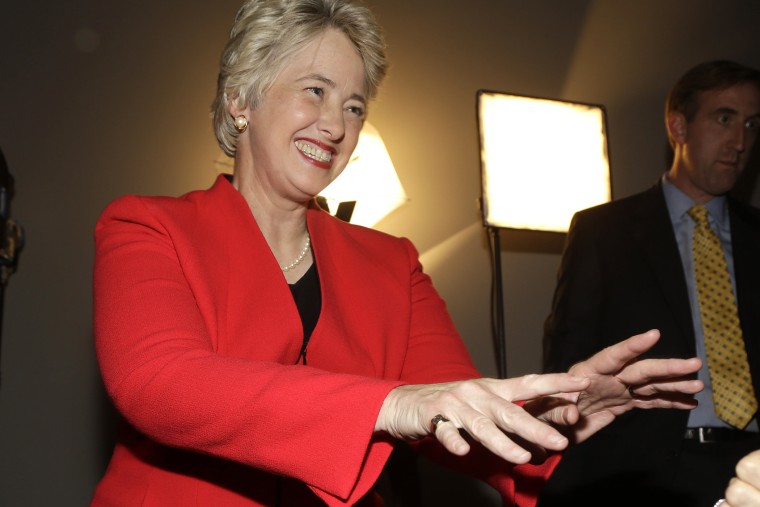People in Houston, the nation’s fourth-largest city, now have something they’ve never had before on paper – protection against discrimination.
On Wednesday night, the City Council approved the highly-controversial Equal Rights Ordinance. The 11-6 vote was met with an eruption of cheers, cries, and hugs inside a packed meeting room in Houston’s City Hall. It came after an 11-hour meeting where an overflow crowd of more than 200 Houstonians voiced support and opposition for the measure. The city secretary says the meeting was the largest public turnout Houston had ever seen at a City Council meeting.
The ordinance bans discrimination in housing and employment among 14 characteristics – including protections based on sexual orientation and gender identity. It was a personal and public victory for openly-gay Mayor Annise Parker who began crafting the law back in December. She signed the ordinance shortly after the vote.
“It is by no means the most important thing I will accomplish as mayor,” Mayor Parker told msnbc on Thursday. “But it is personally meaningful to me because I understand what the hundreds of people who came before Council to describe their experience and the pain and discrimination they face daily.”
Before this week’s vote, Houston was the country’s largest city with no laws protecting citizens against discrimination. There are federal protections for race, color, religion, sex, and age, among others, but nothing on the books federally for members of the LGBT community. Congress has debated, but failed to pass the Employment Non-Discrimination Act – the bill that would extend protections to gay and transgender Americans.
“[The ordinance] provides a local mechanism to address instances of discrimination because we had no existing equal rights ordinance,” Parker said. “Before this ordinance, there was nothing short of a federal lawsuit if someone experienced discrimination.”
The ordinance’s passing came after heavy opposition. A final vote was pushed back earlier this month after critics raised issues with what’s been dubbed “the bathroom clause.” Parents and others expressed concerns that transgender people would be allowed to use public restrooms of the gender in which they identify themselves. The clause was ultimately removed, but transgender people can still file a discrimination complaint under the process outlined for all protected classes.
“It’s a threat to our wives, our children and our grandchildren knowing that our spouses and children may be exposed to potential sexual predators disguising themselves as transgenders,” said Gary Alanis, a Houston resident who opposes the ordinance and spoke at Wednesday’s City Council meeting.
The mayor’s office suggests the new law was not written solely to protect the LGBT community. Parker contends the ordinance was fueled by complaints from African-Americans who complained they were being turned away from bars and nightclubs because of their race. She also cites a 2012 instance when two members of Houston’s major league soccer team, the Dynamo’s, were denied entry into a bar because members of their party were African-American.
“This has been on my to-do list for a long time,” Parker said. “Houston has managed to deal with some of the most wrenching social issues in America in a straightforward, ‘let’s just get it done’ manner. That doesn’t mean we don’t have occasional instances where people have trouble dealing with our amazing diversity.”
Opponents are vowing to fight the ordinance and take the issue directly to voters. They now have 30 days to collect more than 17,000 petition signatures needed to appeal the vote.
